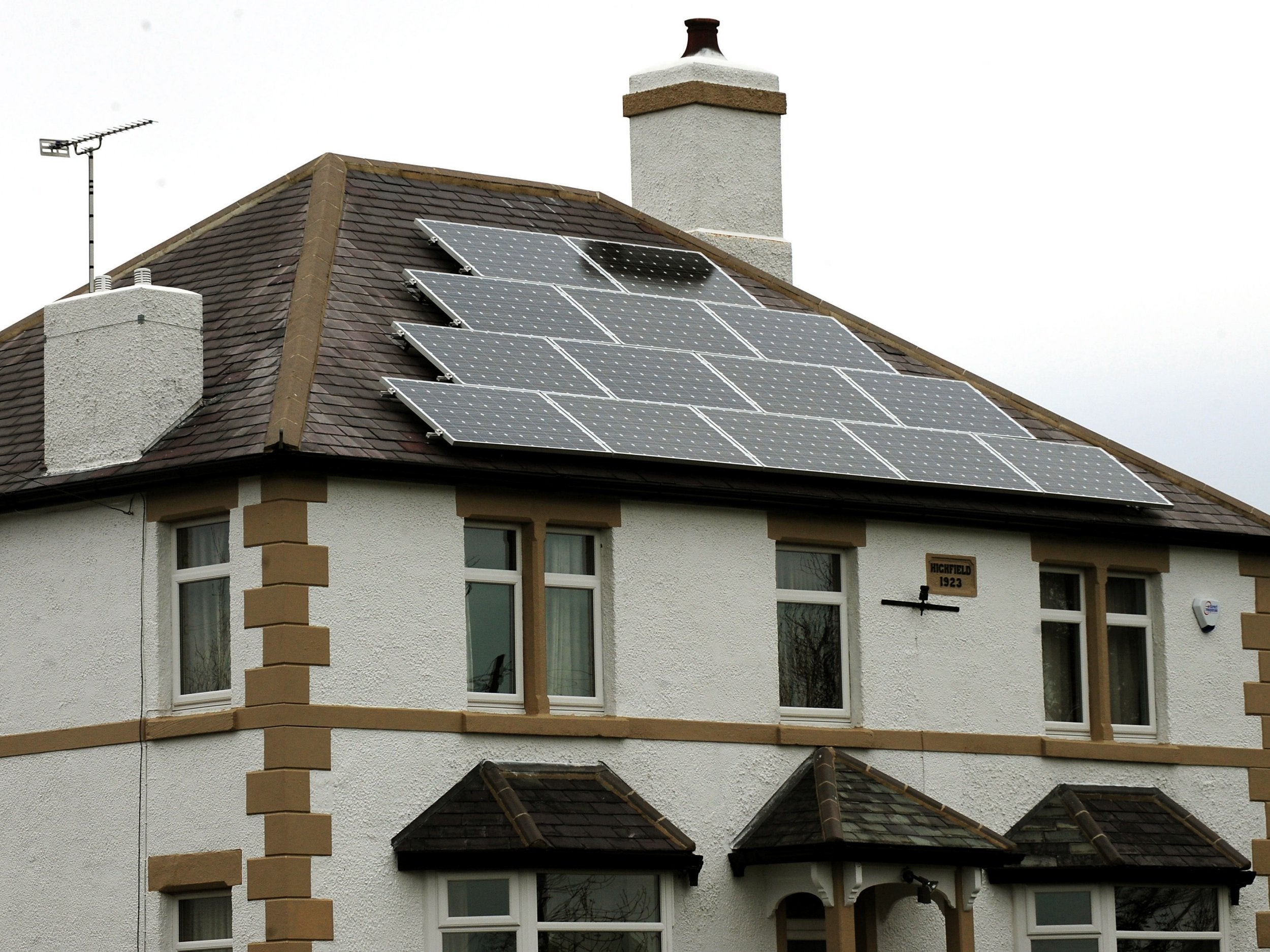Solar panel households to be paid for surplus power under new scheme
New initiative announced after anger about closure of previous scheme to pay consumers for excess green electricity

Your support helps us to tell the story
From reproductive rights to climate change to Big Tech, The Independent is on the ground when the story is developing. Whether it's investigating the financials of Elon Musk's pro-Trump PAC or producing our latest documentary, 'The A Word', which shines a light on the American women fighting for reproductive rights, we know how important it is to parse out the facts from the messaging.
At such a critical moment in US history, we need reporters on the ground. Your donation allows us to keep sending journalists to speak to both sides of the story.
The Independent is trusted by Americans across the entire political spectrum. And unlike many other quality news outlets, we choose not to lock Americans out of our reporting and analysis with paywalls. We believe quality journalism should be available to everyone, paid for by those who can afford it.
Your support makes all the difference.Households and businesses that install solar panels will be paid for any excess electricity they produce under new government plans.
The “smart export guarantee” means energy companies will have to pay people for surplus power they produce.
However, with the government abruptly ending a previous scheme that pays for such surplus power, there is still likely to be a period when customers are providing electricity to the grid for free.
The closure of the original programme had left many concerned about the future of small-scale renewable energy production in the UK.
Under that scheme, people were paid a “feed-in tariff” – a subsidy for the amount of power they generated from renewables – and an export tariff for power fed back to the grid.
The export tariff assumed households exported 50 per cent of what they generated and were paid for it, even if they exported less or the grid did not need it.
The new guarantee would see larger suppliers required to pay those who install small-scale renewables in the future for the electricity they actually export to the grid.
The government said the system could create a new market with different suppliers bidding competitively for the electricity to give exporters the best price while providing the local grid with more green power.
The plans, which the government said are aimed at protecting consumers from having to pay “unfair costs” of the current scheme, have been put out to consultation.
“This new scheme could help us to build a bridge to the smart energy system of the future, with consumers firmly at its heart – not only buying electricity but being guaranteed payments for excess electricity they can supply to the grid,” said energy minister Claire Perry.
The plans were cautiously welcomed by industry, with James Court, from the Renewable Energy Association, saying they could “usher in a new era for small-scale renewables”.
“It was clear that no-one should be asked to give away electricity for free, and we strongly advocated for a market-based solution and are pleased this approach has been adopted," he said.
Solar Trade Association chief executive Chris Hewett said there was still an issue to resolve with “providing remuneration at a fair market rate”.
The consultation closes in March, around the time the existing scheme ends, and the Department for Business, Energy and Industrial Strategy said it wanted the hiatus between the two schemes to be as short as possible.
But shadow business secretary Rebecca Long Bailey said the government was “pushing an already struggling solar industry off a cliff edge”.
“These proposals – which are unlikely to be in place by the time the export tariff closes – present a new mountain for small-scale renewable energy to climb.”
Ms Long Bailey said the proposed mechanism was “hugely complex” and left it up to large energy companies to control how much they pay households.
Additional reporting by PA.
Join our commenting forum
Join thought-provoking conversations, follow other Independent readers and see their replies
Comments